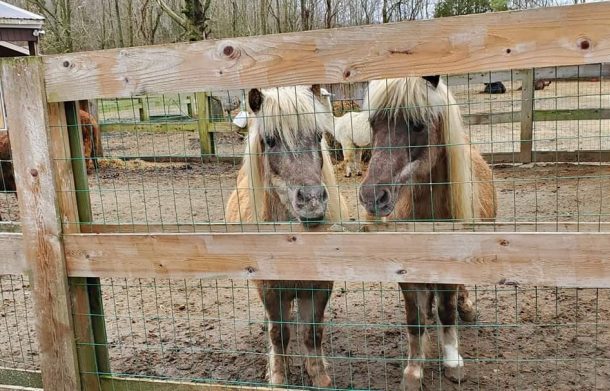

Darlene Supnick understands it’s not always easy to prioritize our four-legged friends when a pandemic disrupts ordinary life.
She also knows horses have played significant roles in everything from one-on-one bonds as therapy animals to being part of the country’s very foundation, to say nothing of how New Jersey’s state animal deserves more care and consideration in difficult times.
“With the horse being the state animal of New Jersey, there should be something for the state to help these horses, some kind of emergency program,” Supnick said. “There are options for rescues and shelters for other animals, but there’s nothing for horses. Some of them have been racehorses that won a lot of money, they’re therapy horses, they are pets and they don’t deserve to be slaughtered.”
Supnick is president of Medford’s Forgotten Angels Equine Rescue, a nonprofit that focuses on horses but has also provided a refuge for livestock and assorted other animals in need of a forever home. Forty-five of its newest residents previously called Paws Nature Center its home, and Supnick had to act quickly to take them in earlier this year.
Through the organization, she has taken in surrendered animals since 2012; this year, however, Supnick has seen a significant uptick in intake since the COVID-19 pandemic has left many without the means to feed or provide care for another living creature. And her animal sanctuary is not the only one affected by it.
“It’s happening to rescues all over New Jersey, and a lot of them are going under,” she warned. “There’s no money; nobody’s able to donate. Our problem is that we got horses back because people who were going to adopt them were afraid, and we saved some horses that people were going to just dump at the auctions. And the only people allowed at the auctions are licensed kill buyers, so these horses don’t even have a chance.”
Supnick added that there are grants available for animal rescue organizations, but they’re only for those with a payroll, and Forgotten Angels is staffed by volunteers. Supnick has even reached out to the Humane Society of the United States, and she has often found help in dire situations from the organization’s New Jersey Director, Brian Hackett.
Unprecedented, scary times also mean that donations, both monetary and supplies like food and medicine, are increasingly scarce. Regular donors’ reliable help diminished once their own resources suddenly became uncertain in ways that leave little room for charity work. And annual fundraisers and educational site visits that once garnered additional support are on hold until life returns to normal.
It’s a shortage compounded by volunteers unable to help as they once could, adoptions halted by prospective pet parents reluctant to take on animals they may have to soon return and some expectant mares poised to give birth soon.
Supnick has 25 extra acres to accommodate animals in need of shelter on an emergency basis, but its lack of fencing precludes it from being an immediate solution to a mounting problem.
Until then, there are ways animal lovers can help.
“We’re always taking donations of hay, and we are desperately in need of foster homes in the area,” Supnick said. A single bale of hay can cost $70 but feeds five to seven horses for nearly a week.
And once life begins to inch toward normal again, Supnick’s plans for Forgotten Angels to give back to the community will resume. Its joint program with Spectra Care Foundation will be one of the first new offerings, with the goal of bringing health and well-being to veterans through interactions with horses.
Anyone interested in learning more about Forgotten Angels or offering help the organization can visit its website at faernj.com.


